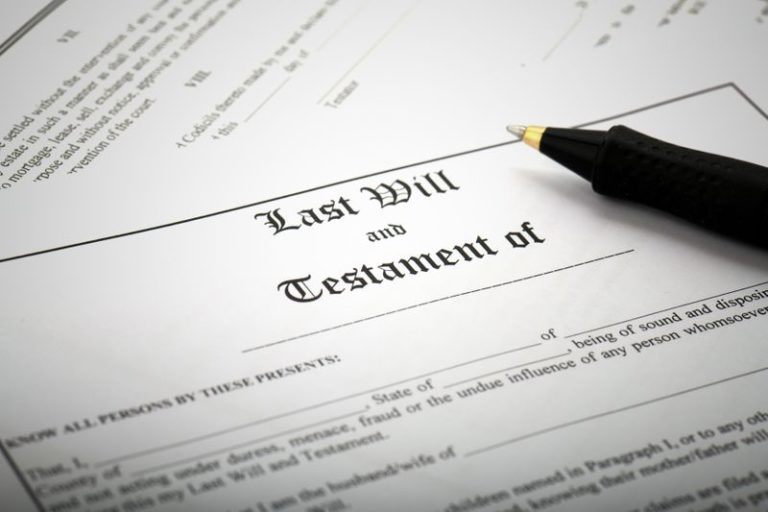
Intestacy and the Importance of Making a Will
Estate Planning
Estate Planning refers to the process of planning and documenting your wishes for the distribution of your assets when you die. Estate planning not only deals with the assets that you own personally, but those that you control as well. Estate planning can also involve the use of insurance policies and should also consider how your retirement account is to be paid after your death.
A good estate plan requires the involvement of skilled legal, accounting and financial specialists to ensure that the right assets end up in the right hands at the right time. There are some basic elements that should be considered when addressing your estate planning needs:
- Having sufficient assets available to meet your wishes upon death;
- Ensuring beneficiaries receive the entitlements that you intended for them to receive;
- Any potential taxation associated with the transfer of assets is minimised;
- Any beneficiaries with special needs are protected;
- Ownership or control passes to a beneficiary at the right time.
A Will enables you to direct how your assets are to be dealt with after your death. Everyone, even with modest assets, should have a current and valid Will to ensure that their wishes are clearly expressed upon their death. It is especially important for anyone living in a de facto/interdependent relationship or who is separated or divorced. Keeping your Will up-to-date when circumstances change is the most important aspect of an estate plan. It should be reviewed at least every five years or whenever your circumstances change. This may include the birth or adoption of a child or grandchild, a marriage or divorce and even the purchase of large assets. It is highly recommended that you review your existing Wills in conjunction with your solicitor. If you die without a Will, or an incomplete Will, you are said to have died ‘intestate.’ With no Will in place, your estate will be split based on the rules contained in the local estate planning laws of the country your assets reside. The fundamental principle is that the estate will pass to the next of kin of the deceased, meaning that your estate may not be distributed how you would have liked.
Assets that form part of a deceased’s estate and are ultimately disposed of by the deceased’s Will, are called Estate Assets.
Such assets may include:
- All assets you own personally;
- Your shares in a company;
- Your share of any asset you own as tenant-in-common;
- Any insurance death benefit;
- Your interest in any partnership assets, unless agreed otherwise;
- The right to recover any funds owed to you; and
- Any rights you hold under any contract or agreement.
Assets that are not directly controlled by a person do not form part of their estate and cannot be disposed of by their Will. These assets called Non-Estate Assets include:
Assets you own as a joint tenant such as your home or bank account (these pass automatically to the other joint tenant(s));
- Assets owned by a company (only the company can deal with its assets);
- Death benefits or life insurance policy proceeds paid directly to a beneficiary.
- Your retirement benefits.
a Power of Attorney is providing someone with the authority to act on your behalf. The Power can be unlimited, in that your Attorney can do whatever you can do legally; or, the Power can be limited to certain things (e.g. to dealing with your shares only) or limited in time (e.g. for one month while you are overseas). Powers of Attorney have extremely broad scope and careful consideration should be given to which individual, individuals or company is chosen to act as the Attorney. The Attorney can effectively make legal, financial and personal decisions on an individual’s behalf and as such, when making the appointment requires a significant level of trust and comfort. By not appointing an Attorney, if in the future you were unable to make decisions or communicate your wishes, financial decisions may have to be made by the Public Trustee. Because of its legal effect, any Power of Attorney must only be signed after obtaining the advice of your solicitor, so please consult your solicitor for further details on Powers of Attorney. There are generally three types of Powers of Attorney depending on the local law prevailing, however you should check with your solicitor which types of attorney are available in location.
General Power of Attorney is normally used in a limited capacity. For example, you may wish the Attorney to conduct a specific transaction such as the purchase of a property or you may be going overseas for a prolonged period and wish for the Attorney to manage your affairs in your absence. However, if you become mentally incapable of managing your own affairs, the General Power of Attorney becomes null and void.
Lasting Power of Attorney remains valid even when a person is deemed to be mentally incapacitated. This means that should you lose your capacity due to accident, stroke or a degenerative disease; the Attorney can step in and manage your affairs on your behalf.
The risk of giving this type of power is that you are unable to revoke it if the court has determined that you can no longer make your own decisions (unless the Attorney is not acting in your best interests). It is possible to give someone a Lasting Power of Attorney over your affairs that are not valid unless you become mentally incapacitated.
Estate Planning can sometimes feel confusing and possibly stressful. Though that’s nothing compared to not having an appropriate plan in place. The first step is to consider, discuss and write down your wishes as a starting point. Consider seeking legal advice to help you formally implement your wishes.
Disclaimer: The information is brought to you by Aon Hewitt Consulting (Shanghai) Co. Ltd. registration number 310000400102466. The information does not take into account the specific investment objectives, financial situation or particular needs of any particular person who may be in receipt of the materials. Accordingly, it should not be relied on or treated as a substitute for specific advice concerning individual situations. Please seek advice from a financial adviser regarding the suitability of any investment product taking into account your specific investment objectives, financial situation or particular needs before you make a commitment to purchase an investment product. You are also recommended to obtain such other professional advice where appropriate. The information is provided in good faith and believed to be accurate as of the time of compilation. We do not undertake an obligation to update the materials or to correct any inaccuracy that may become apparent at a later time. You should always consult primary or more accurate or more up-to-date sources of information.




